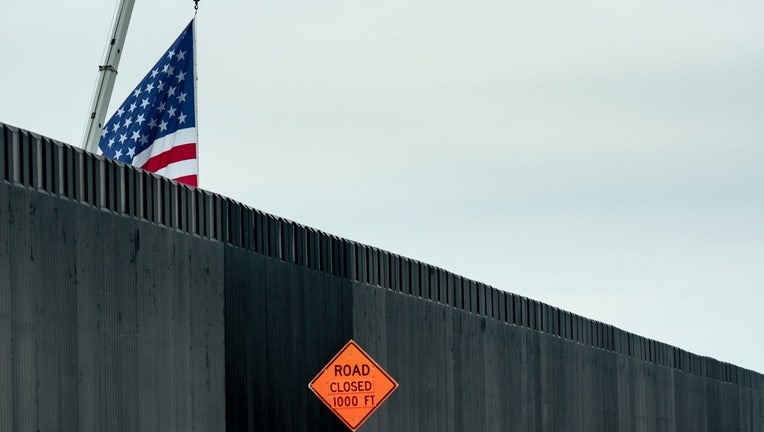Biden's decree ends 'emergency' that Trump used to build border wall

A border wall site near the Texas-Mexico border near Alamo, Texas, Tuesday, Jan. 12, 2021. (Official White House Photo by Shealah Craighead)
WASHINGTON - President Joe Biden has officially ended the "national emergency" that former President Donald Trump declared in order to take money from the Pentagon to build a wall along the U.S.-Mexico border.
The White House released a letter Thursday from Biden to House Speaker Nancy Pelosi notifying Congress that he had rescinded his predecessor’s February 2019 proclamation.
It was a formality since Biden ordered a halt to border wall construction shortly after he took office.
In his letter, the president said Trump's declaration of a national emergency had been "unwarranted" and that he had directed that "no more American taxpayer dollars be diverted to construct a border wall." He also ordered a review of all money spent on the project so far.
RELATED: Biden signs immigration orders aimed at undoing Trump-era policies, reuniting families
The U.S. has been building border walls for decades under both Democratic and Republican administrations. Trump made the effort a centerpiece of his first presidential campaign, vowing to build a wall across the entire border and have Mexico pay for it.
Trump took roughly $6 billion from military funds under the national emergency he declared after Congress refused his demands for wall funding, leading to the longest government shutdown in history.
The Supreme Court upheld a legal challenge to Trump's action in a 5-4 vote in July 2019.
By the end of his administration, the U.S. had completed more than 450 miles of new wall construction along the 2,000-mile border. Much of the construction was in areas where there had already been some form of barrier.
RELATED: US won't make immigration arrests at COVID-19 vaccination sites
Trump administration officials said the border wall slowed down smugglers and people crossing the border illegally so they could be more easily apprehended. Critics said there were more effective tools for enforcement and that parts of the new construction damaged environmentally sensitive areas or were in places where a wall wasn't needed. There were also private landholders who objected to having their property seized for the project.
As of Jan. 15, the government had spent around $6 billion of the nearly $11 billion in work it signed contracts to have done.

